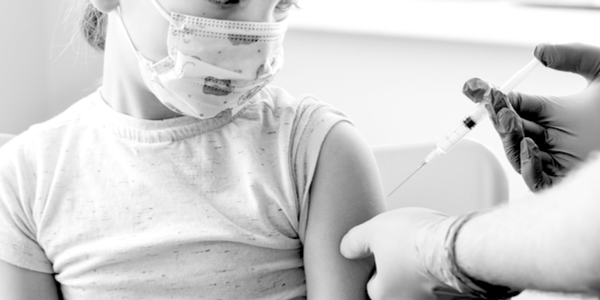AT THE UK Medical Freedom Alliance, we have grave concerns about the increasing medicalisation of schools, particularly the co-opting of schools by the NHS as vaccination venues, thus sidelining parents.
We contend that school is primarily a place for delivering education to a child, not healthcare, and is not an appropriate place to administer vaccines, especially by medical staff who do not know the individual children and their medical histories. A child’s own GP or practice nurse is far better placed to ensure that any intervention is appropriate and given with full and informed consent.
Blurring the line between education and healthcare in the context of schools raises important ethical questions. Administering vaccinations in this environment is impossible without compromising individual confidentiality and privacy, both important tenets in the provision of ethical medical care. Pupils will be acutely aware which children in their class have or have not taken a particular vaccine, which can be a source of great stress and shame for those who are not in the majority. In the absence of their parents for support and protection, children are highly susceptible to peer pressure from fellow pupils and are heavily influenced by the opinions of their teachers, so will naturally feel under pressure to ‘follow the crowd’. This creates a coercive and unsafe environment that is completely inappropriate for an individual medical decision. In addition, valuable lesson time is lost, and lessons are disrupted on vaccination days.
We were disturbed to come across a January 2024 policy briefing on ‘School Age Immunisation Services in England’ (SAIS) from the London School of Hygiene and Tropical Medicine. This seeks further to hijack schools and their captive children to promote and meet public health targets following a stated decline in children’s vaccine uptake since covid. They advocate that the Department for Education and the Department of Health and Social Care work together to help SAIS offer 100 per cent of eligible children and young people the vaccines that are on the schedule, to increase regional and national vaccination uptake levels and reduce inequalities in uptake.
The policy laments the fact that currently ‘schools are not required to engage with or collaborate with SAIS or to support vaccine delivery on school premises’ and recommends that in future, all schools (independent and state) should be required to:
1. Have measures in place to support SAIS to deliver vaccines on-site (e.g. including a space and time for vaccine programme delivery in the school schedule);
2. Comply with the official guidance produced by NHS England outlining that schools are legally permitted to share the contact information of pupils and parents/caregivers with SAIS to facilitate a timely offer of vaccination and consent pathways;
3. Disseminate vaccine programme information and invitations from SAIS to parents/caregivers in a timely manner;
4. Nominate a dedicated staff member to liaise with SAIS;
5. Make the above requirements part of Ofsted inspections, under ‘leadership and management’;
6. Require local authority education services to collaborate with and
support SAIS teams.
Forcing schools legally to co-operate with SAIS, by being required to disseminate their (often one-sided) literature and to enable access for vaccinators, using Ofsted as the enforcer, is highly coercive. This is a disturbing prospect for those who believe in medical freedom and the importance of being able to question and challenge policies involving children. Schools must retain their independence and be allowed to make autonomous decisions as to whether they wish to be involved in state-run public health programmes, based on their assessment of what is in the best interest of the children in their care, on a case-by-case basis, and balancing all their needs, not just the need (or otherwise) for a vaccine.
The London School of Hygiene and Tropical Medicine is closely linked with the Vaccine Confidence Project (VCP), which was established in 2010 by the college’s Professor Heidi Larson to ‘better understand growing vaccine scepticism around the world’. This policy briefing supports the VCP agenda. The funders and partners of the VCP include many multinational pharmaceutical companies, such as Merck, AstraZeneca and GSK, who stand to profit from any increase in uptake of vaccines. Therefore, this is not a politically neutral document, but is being supported by powerful vested interests whose business models involve getting needles in the arms of as many children as possible.
This creeping medicalisation of schools is worrying. The teaching of corporate propaganda, in the guise of ‘accurate information’ and ‘providing appropriate educational materials that promote vaccine confidence’,risks turning education into indoctrination, where children are taught what to think instead of how to think. Over the last three to four years we have seen how powerful the pharmaceutical industry is and how lucrative it is to vaccinate all healthy children, especially with vaccines that require frequent boosters. With such powerful vested interests lobbying for more and more access to our children, it is surely time to draw a line. Medical discussions, decisions and interventions for children must revert to the privacy of a consultation with their own GP or Practice Nurse. A child should always be accompanied by a parent, the healthcare professional should follow a proper process of informed consent, discussing risks and benefits in an open and non-coercive way, and the decision made by parents (with or without input from the child) should be accepted and respected.
Next: How the NHS tries to exclude parents from healthcare decisions and access to their children’s medical records.











